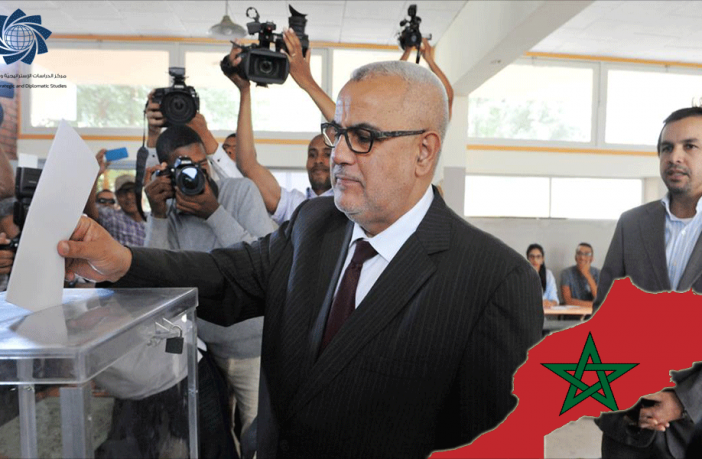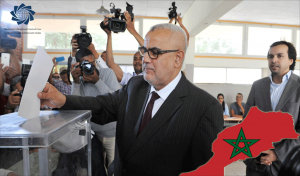Asharq Al Awsat
Eyad Abu Shakra
An advice given to me by a dear late friend keeps coming to mind when I discuss politics. He said: “Beware, Eyad, of a politician who knows only politics and likes nothing but politics!”
He was absolutely right; and after getting the chance to meet with politicians all over world the world, I realized that the worst were those who do not enjoy reading, are not attracted to culture, never developed an artistic taste or hobby, whether for music, drawing, painting, sculpture, or literature.
This is not the case with Morocco, where I found, over the years, the highest percentage of intellectually, culturally and artistically gifted but totally unpretentious politicians and diplomats in the Arab world. This quality is for all to see in Morocco’s political life which the other day crossed another important milestone when the second general elections in the country since “The Arab Spring” were held. The “Spring” that has shaken, changed and uncovered a lot of our political ills.
Here, too, Morocco has been an exception. The massive upheavals witnessed in some Middle Eastern and North African countries, showing the ugly face of dictatorship, the malignancy of terrible sectarianism and the disingenuity of glittering slogans, led to civil and tribal wars nurtured by regional greed and international conspiracies that are destroying Syria, Iraq, Yemen and Libya.
Morocco, however, thanks to its politicians’ awareness and realism, has continued to enjoy two advantages that have allowed it an easy and safe passage through “The Arab Spring” despite the social and economic difficulties in a young nation that is not blessed with rich resources.
The first is political legitimacy. There is no question in Morocco about the legitimacy of Amir Al-Mu’mineen (The Commander of the Believers), neither from the Left nor from the Right. Both the ideological and trade unionist Left have adapted to and interacted with this legitimacy because they preferred national unity and social stability over venturing into the unknown. As for the Right, both its liberal and religious wings have had no reason to challenge either the country’s market economy or its ruler’s religious legitimacy.
The second is the ‘exhaust valve’, i.e. the mechanism that is provided by the cultures of co-existence and diversity in a country that has rejected exclusion, marginalization, denial, factional privileges, which directly contrast with the anathema that has been destroying the entities of the Mashreq before our eyes.
I thought long and deep before choosing to write about the Moroccan general elections and its meanings today. I hesitated. Then I asked myself the following questions:
1. Would it be right to ignore the affliction of Aleppo, the world’s second oldest metropolis, the city long praised by Al-Mutanabbi (the great 7th century Arab poet), now being slaughtered by the bloodiest mass murderers of the 21st century?
2. Would it be appropriate to disregard the imminent grave danger threatening Mosul, the ‘mother of two springs’, the birth place of Ibrahim and Ishaq Al-Mosuli (the great musicians of the 8th and 9th centuries), the jewel of Iraq’s cities and the capital and cultural cradle of Assyria?
3. Can I possibly forget Lebanon; ‘God’s paradise on Earth’, the ‘homeland’ of my father and forefathers, and the playground of my youth that is burdened by tyrannical occupation and threatened by a bleak future?
4. Is it possible to turn the page of Yemen, once felicitous but currently grief-stricken, which is encountering the Persians as conquerors rather than saviours in the absence of Saif bin Dhi Yazan (the great pre-Islamic Yemeni hero)?
All of these afflictions are, unfortunately, true. But because they are, the contrasting picture becomes more deserving of discussion and analysis. The Moroccan experiment, specifically in accommodating diversity and the opposite view, provides a lesson in ‘The Culture of Life’, while the Mashreq entities look as if they are in a race for death, whether gratuitous, in the shape of martyrdom, or in attempts to obliterate others.
In Morocco, as reflected by the polls, there is no monopoly of patriotism and no outbidding from any side. Furthermore, although it is almost impossible to have a spotless election – as proven by the flawed Florida poll in the US presidential elections of 2000 – it has been obvious that the top priority for all Moroccan parties is the firm belief that the choices and programs put forward to the voters are there to be negotiated by their parliamentary representatives, and implemented in the widest consensus possible.
Clearly, the Islamist ‘Party of Justice and Development’ led by the current Prime Minister Abdul-Ilah Ibn Kiran was the major winner, gaining 125 seats out of a total of 395, against the 102 seats gained by the liberal ‘Party of Authenticity and Modernity’. With the rest of the parliamentary seats shared by several other parties including the “historical trio” of the ‘Istiqlal (Independence) Party’, the ‘Popular Movement’ and the ‘Socialist Union of Popular Forces’, the overall result shows two facts. The first is that moderate Islamists continue to enjoy sizeable support; and the second is that intellectual and cultural diversity continue to enrich Moroccans’ politics inside and outside their home country.
It is worth noting here that ‘political Islam’ has neither been new nor alien to the Moroccan political scene before and after the country’s independence. It was always one of the salient identities of the national struggle led by great patriots like Allal Al-Fassi and Dr Abdul-Karim Al-Khatib. The ‘marriage’ of Islam and nationalism has been the solid base for Morocco’s unity that has transcended regional, ethnic and linguistic divides.
By the same token, the other political trends of all colors and creeds thrived in Morocco’s rich and glorious diversity. The history and geography of the country has confirmed the principle of ‘unity in diversity’ throughout the ages. Indeed, Morocco has been the ‘bridge’ of Islam, Arabism, and ‘Amazighism’ linking Africa – including its Middle Eastern depth – with Europe. It is also the full cultural partner in the great Andalusian heritage and its preserving reservoir, as well as being the melting pot of French, Spanish and Portuguese cultural influences with the Moorish (Arab/Amazigh) core expressed in almost every field.
Furthermore, in Morocco the cultural lifestyles of the rural areas, desert oases and major cities have fused and metamorphosed in an amazing way. Indeed, this exceptional country has had several ‘capitals’ including four ‘royal capitals’ (Fez, Meknes, Rabat and Marrakesh) which enjoyed glorious periods under different dynasties, and a vibrant economic capital (Casablanca), and a metropolis that was once ‘an international city’ (Tangier). Home to the world’s oldest university (Al-Qarawiyyin University and the grand mosque in Fez), Morocco has been a hotbed of industrial and trade unionists movements that bore impressive cultural and political fruits.
Last but not least, Morocco’s political successes have not been limited to the national or domestic scene, but could be witnessed wherever expatriate Moroccan communities live. Three Moroccan women are currently members of the French cabinet, another is the speaker of the Dutch parliament; and a compatriot of hers is the mayor of Rotterdam, the Netherlands and Europe’s largest port.
Many thanks to Morocco from every Arab, and congratulations for the recurring success of its democratic experiment.
Eyad Abu Shakra is the managing editor of Asharq Al-Awsat. He has been with the newspaper since 1978.








